2-day training programme on human rights for Indian Forest Service Probationers organised by the IGNFA with the support of the NHRC, India begins in Dehradun
2-day training programme on human rights for Indian Forest Service Probationers organised by the IGNFA with the support of the NHRC, India begins in Dehradun
As a part of the National Human Rights Commission’s ongoing initiative to sensitise and build capacities of All India Services officers who work on the ground, on human rights, a 2-day training programme organised by the Indira Gandhi National Forest Academy (IGNFA) for the 2023 batch of the Indian Forest Service (IFS) probationers began in Dehradun today.
Inaugurating the programme, the NHRC, India Chairperson, Justice Shri V. Ramasubramanian said that under Article 48A of the Constitution, while the State shall endeavour to protect and improve the environment and safeguard the forests and wildlife of the country, it is also the fundamental duty of every citizen under Article 51A (g) to protect and improve the natural environment, including forests, lakes, rivers, and wildlife, and to have compassion for living creatures.
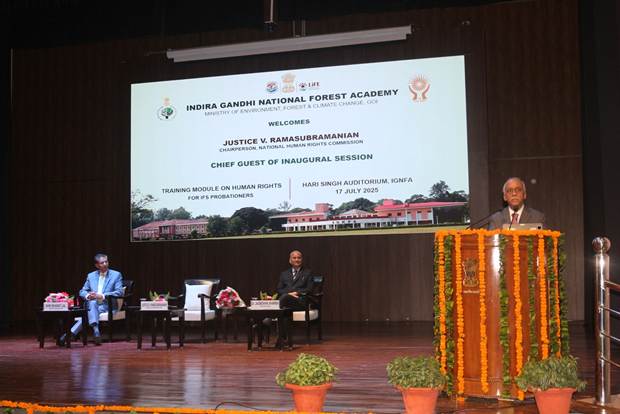
Tracing the historical development on the evolution of human rights and the international perspective surrounding them, Justice Ramasubramanian highlighted the swift and steady progress in recognition and enforcement of human rights across the world beginning from Charter of Cyrus, Magna Carta, Bill of Rights to the 12th, 13th and 14th amendments to the US Constitution, French Revolution, and the Universal Declaration of Human Rights in 1948.
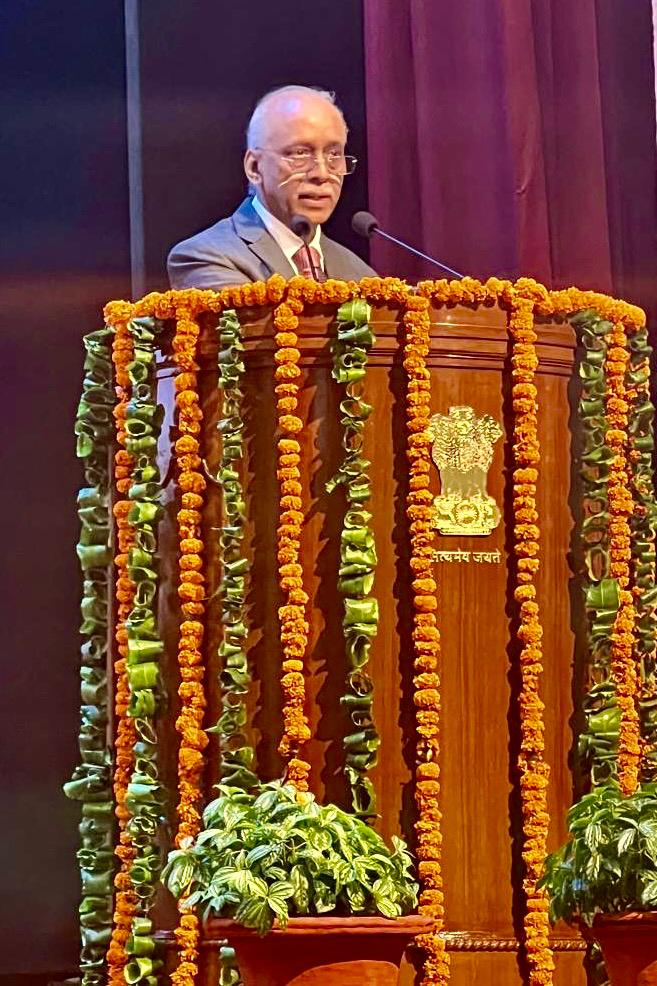
In this context, he also elaborated on the categorisation of human rights into four generations: the first generation comprising civil and political rights; the second generation encompassing social, economic, and cultural rights; the third generation, often referred to as collective rights, which gained prominence following the 1992 Rio Declaration; and the fourth generation, which includes emerging rights in response to rapid technological advancements and global challenges of the 21st century. He said that there are complex ethical concerns arising from developments in artificial intelligence, biotechnology, digital privacy, and environmental sustainability, which need to be addressed.
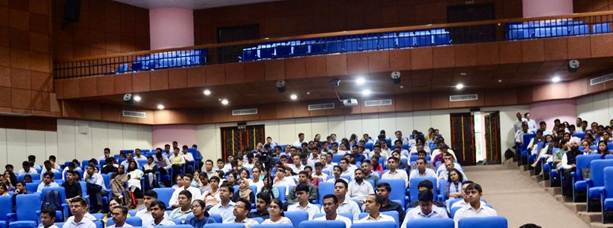
In his keynote address, NHRC, India Secretary General, Shri Bharat Lal, highlighted India’s robust institutional and constitutional framework for the protection of human rights. He said the concept of human rights is deeply rooted in the nation’s civilisational and cultural ethos of empathy, compassion, non-violence, and human dignity. Citing historical examples, he noted India’s tradition of providing refuge to persecuted communities and described figures like Mahatma Gandhi, Raja Ram Mohan Roy, and Dr. B. R. Ambedkar as early champions of human rights. Underscoring the role of Fundamental Rights, Directive Principles, and judicial tools like writs under Articles 32 and 226 in safeguarding people’s rights, he emphasised the importance of Public Interest Litigation in protecting human rights and ensuring justice.
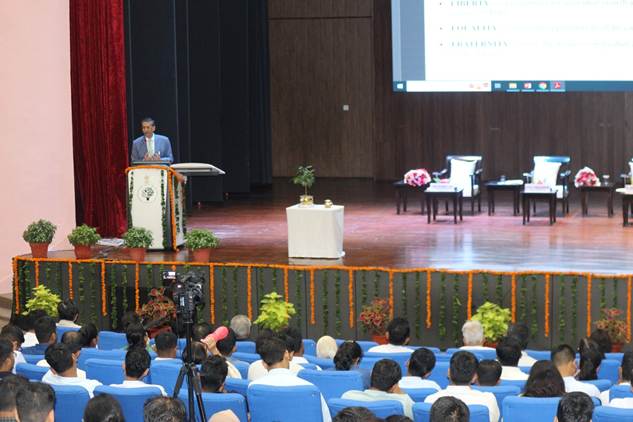
Shri Lal elaborated on the pivotal role of the NHRC, India, as the apex body for human rights protection, which also coordinates with the other National Commissions and State Human Rights Commissions (SHRCs), offering accessible complaint mechanisms in various official Indian languages besides English. The Commission takes suo motu cognizance of the serious issues of human rights violations, monitors human rights violations, and issues advisories. It also engages in field-level work through Special Rapporteurs, Core Groups meetings, open house discussions and Camp Sittings promoting awareness and capacity-building. As a part of its outreach, NHRC also supports research studies and training, and conduct internship programmes. He urged young IFS officers to ensure inclusion of tribal communities and other forest-dwellers in managing forest and wildlife. They must ensure that local communities are involved in ongoing conservation efforts and respect their rights for sustainability.
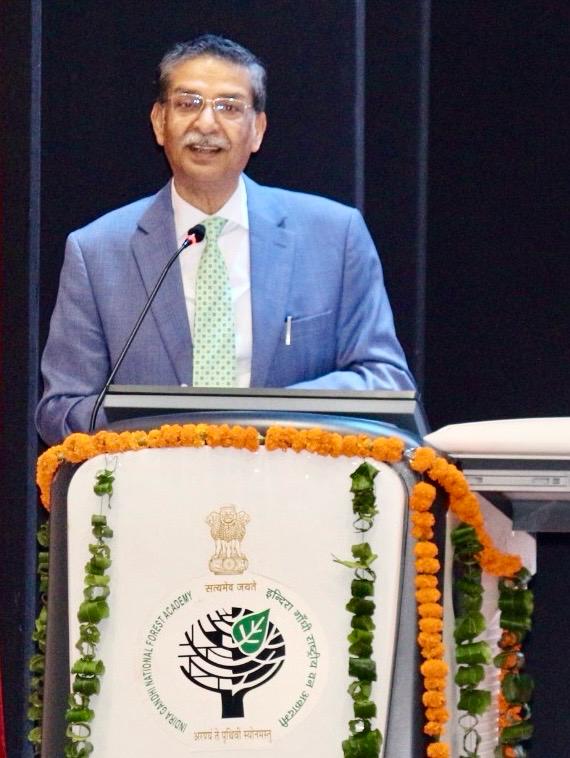
Earlier, outlining the objective of the training programme, Shri Jagmohan Sharma, Director, IGNFA, said that it aims to integrate the principle of human rights and dignity into environmental governance and equip the IFS probationers with the related key legislative and best practices from across the country. He noted that India has made significant strides in the protection and promotion of human rights. He also highlighted the vital role of the NHRC in safeguarding the rights of the marginalised and vulnerable population in the country.
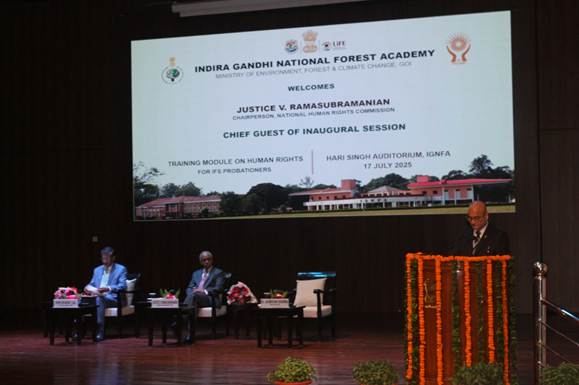
The training programme is spread into 13 theme-based sessions being addressed by eminent domain experts like Shri Rajiv Jain, Former NHRC Member; Shri Rajiv Kumar, Former Chief Election Commissioner; Shri Prasant Kumar, Member, CAT Srinagar; Dr S. P. Yadav, DG, International Big Cats Alliance (IBCA); Shri R. R. Rashmi, Former Spl Secretary, MoEFCC; Dr C. N. Pandey, Former PCCF (HoFF), Gujarat; Smt Meenakshi Negi, PCCF (HoFF), Karnataka; Ms Sunita Narain, DG, Centre for Science and Environment (CSE); Shri D. K. Nim, Former Joint Secretary, NHRC; and Shri Franklin L. Khobung, Joint Secretary, Ministry of Agriculture and Farmers’ Welfare.
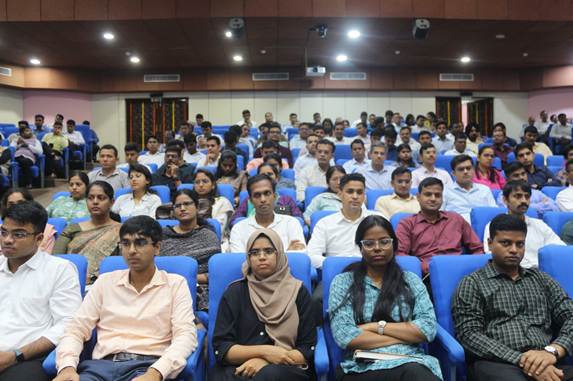
Last month, the NHRC organised a similar training programme for the IPS probationers in coordination with the SVPNPA, Hyderabad. Earlier, Shri Bharat Lal, SG, NHRC addressed the Indian Foreign Service probationers undergoing training at Sushma Swaraj National Institute of Foreign Service, New Delhi to sensitise them about various dimensions of human rights. He also addressed a batch of Foreign Diplomats undergoing training at Sushma Swaraj National Institute of Foreign Service, New Delhi, followed by Q&A session. With such initiatives, NHRC is strengthening human rights awareness and sensitivity among young civil servants during their initial phase of service, ensuring lasting impact.